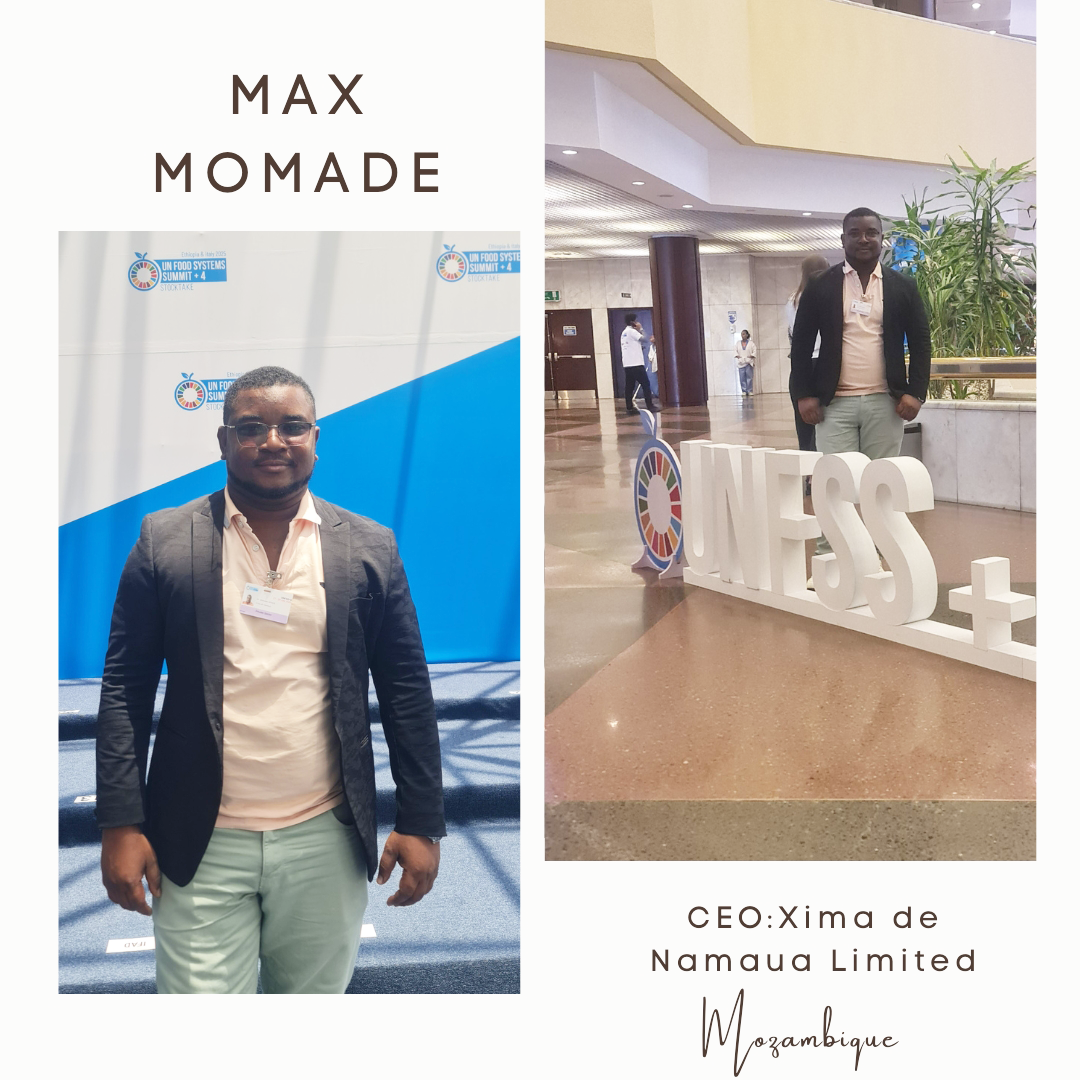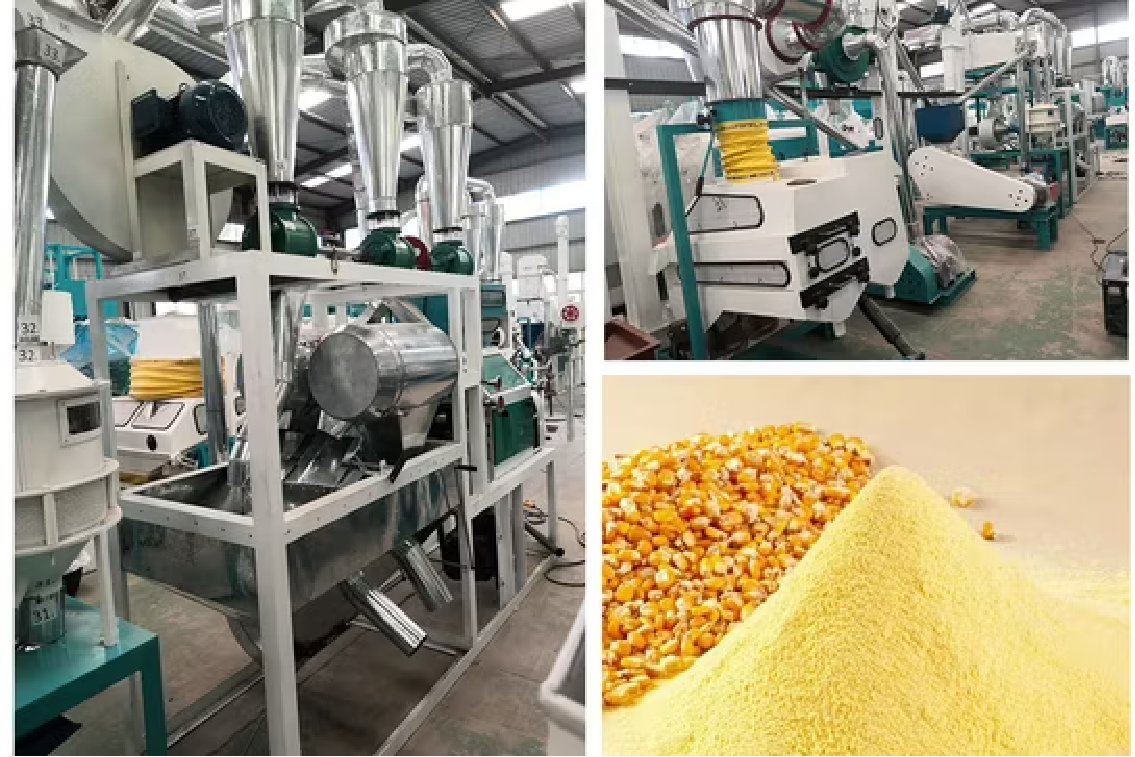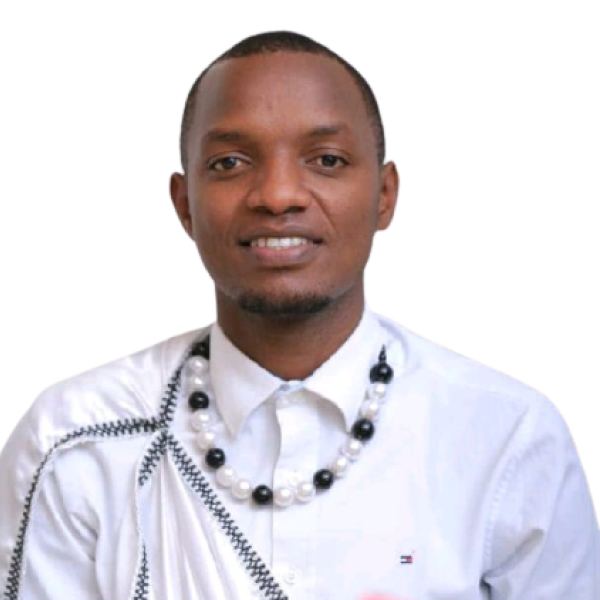Business Engagement at UNFSS+4: The Experience of GAIN supported MSMEs
We invite you to read this interview with Max Momade, CEO of Xima de Namaua Limited, sharing his experience from this global forum.
Date: 19th/September/2025
We invite you to read this interview with Max Momade, CEO of Xima de Namaua Limited, sharing his experience from this global forum.
Date: 19th/September/2025
The Second United Nations Food Systems Summit Stock take (UNFSS +4) which held 27–29 July 2025 in Addis Ababa, co‑hosted by Ethiopia and Italy – closed with a powerful reaffirmation of political will, partnership, and accountability in support of sustainable, inclusive, and resilient global food systems transformation. It brought together 3,500+ participants, 145+ national delegations and 700+ non-state actors. Participants from governments, civil society, producers, youth, Indigenous Peoples, academia, and the private sector gathered for Plenary sessions, High-level Panels, Ministerial Roundtables, Investment Dialogues, and Stakeholder-led constituencies.
To address the pressing challenges of food insecurity and malnutrition, we need targeted investment informed by data and evidence on where to invest for impact and results at scale. As part of the UNFSS+4, the World Business Council for Sustainable Development (WBCSD), in collaboration with FAO and the UN Global Compact, were requested by the UN Deputy Secretary-General to convene a Business Engagement Group. This group coordinates inputs and contributions to UNFSS+4, with the aim of mobilizing greater investment and unlocking private sector financing for innovative and entrepreneurial solutions with proven impact for food systems transformation.
In line with this, about 20 Small and Medium Enterprises (SMEs) and entrepreneurs selected by the Business Engagement Group pitched their ideas and presented investment opportunities to government officials, private sector, investors and partners during moderated sessions. The selected SMEs from various regions, presenting on investment opportunities demonstrating tangible contributions across the food systems, that are both impactful and economically viable. Two of these businesses were high impact agrifood enterprises supported by GAIN in Nigeria and Mozambique. Their participation at the summit enabled them to connect, learn, and, most importantly, unlock financing for their growth plans.
We invite you to read this interview with Max Momade, CEO of Xima de Namaua Limited, sharing his experience from this global forum.
Max: A 2014 study found that schools, small stores, and local communities had limited access to maize flour and lacked other processed food in Mozambique. To respond, we founded Xima de Namaura in 2015 and constructed our first maize processing unit in the village of Namaua in the Mueda district in 2018. It brought joy to Nanenda, Imboho, Mpeme, Micalale and other surrounding villages, as the communities and schools no longer had to travel several kilometers searching for maize flour.
Today, we process and sell 50 MT of maize flour daily in Mueda, Nangade, Muedumbe, Mucímboa da Praia, Ancuabe, and Pemba districts. Some of these districts suffer from political instability. We started working with GAIN in 2017 and have sold 1.5 million servings and created 11 jobs (2 women and 9 youth) in the last 3 years. We accepted the invitation to participate in investment dialogues because we are looking for equipment to fortify our products, increase production, and expand the market to more districts of Cabo Delgado and neighbouring provinces.

Max: I met several prominent suppliers from two Mozambican farmers' associations. We exchanged contacts and will eventually create business partnerships to supply corn and other cereals. We connected and will continue the discussions to execute our plan.
Max: There were many good, innovative ideas that we will likely use to improve our production system, boost our productivity, and provide the best possible service. This was especially true for the type of flour packaging one of the Tanzanian participants displayed.
Max: There were several positive ideas about financing, and investors showed readiness and willingness to help improve food systems at the community level. We found that there is indeed great concern about ending malnutrition in countries, especially in rural communities.
Max: A WhatsApp group was created to continue the partnerships created during the event. This will significantly help exchange experiences in various business areas addressed during the event.
Max: The event was complete and very incredible. I saw very attractive packaging that is actually low-cost, and we thought about implementing it in our organization, regarding education. We had already been giving lectures in communities so that they opt to consume fortified products, especially for women and children. This educational component was addressed at this event, and we will also strengthen our awareness campaigns. I only noticed the absence of a supply chain of equipment for cereal processing, which would undoubtedly lead us to establish partnerships for the supply of the equipment we want.
Max: Several positive examples could be well adapted to our context, and I was very happy to see other event participants creating partnerships to supply their products to large multinational companies. This gave me more strength to continue making and improving our services in order to fortify our flour and in the future be in the same distribution networks as the WFP and UNICEF agencies in our region.
Elaborate on any knowledge you gained from attending the main summit that you will incorporate into your business.
Max: One of the insights I gained during the summit was that to end malnutrition in my community; we are directly involved in this issue. We are focused on fortifying our flour in order to provide fortified corn flour to our communities. This is our challenge. We are currently not fortifying our flour due to a lack of appropriate equipment, and this causes us to miss several opportunities to enter the supply system to the largest suppliers, because the fortification of basic necessities is one of the key requirements.

Max: Well, malnutrition is really a serious issue and it must be a fight for all of us. I want to be able to provide fortified corn flour with added beneficial nutrients to my communities. I am only limited by not having appropriate equipment to be able to move forward with fortification. In this sense, if I have financial support for equipment, I see that I can contribute positively and actively to the fight against malnutrition.
Aimé Garlas Kwizera, Programme Lead, Nutrition Enterprise Development
Email: [email protected]
Read more about the Business Engagement at the UNFSS+4 HERE

Programme Lead, Nutrition Enterprise Development